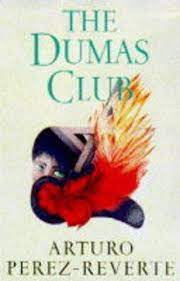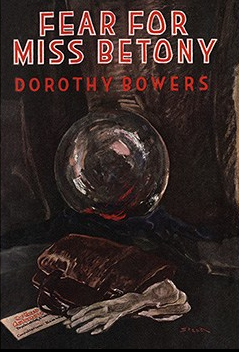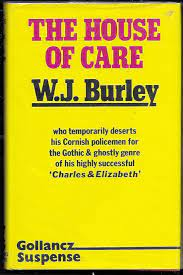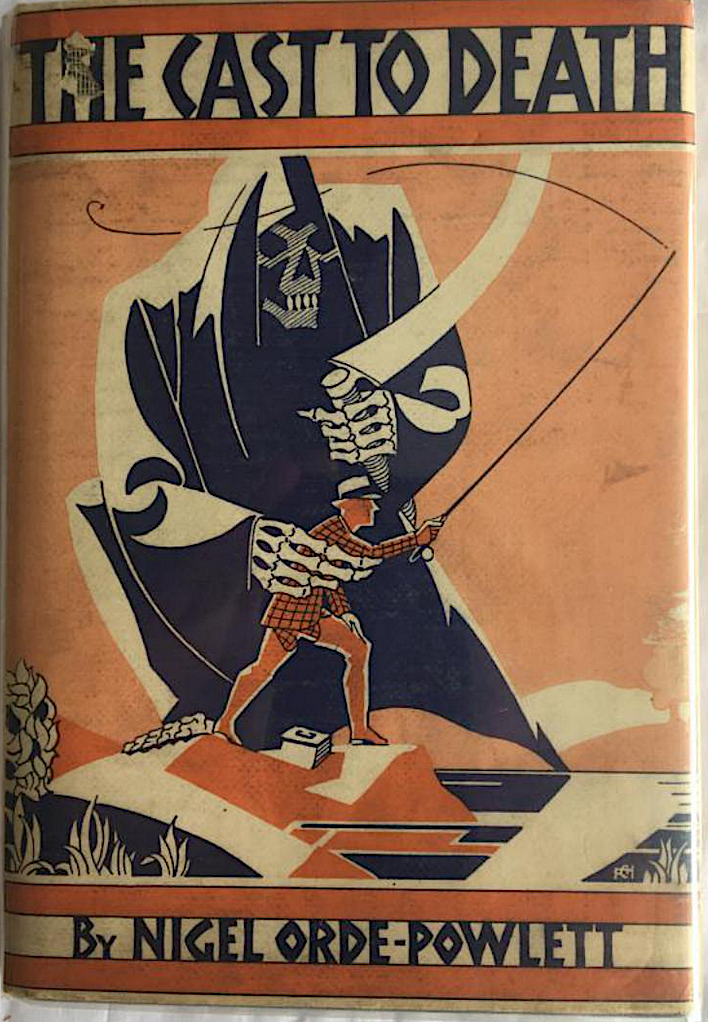I was sorry to learn of the sudden death this week, from a heart attack, of Rupert Heath. Rupert Heath was a literary agent (whose clients included A.K. Benedict among others) but some years ago he diversified into publishing. Dual operation as agent and publisher is an interesting concept that I know has been discussed quite extensively in publishing circles in recent years. It seems fitting to pay tribute to him by featuring one of his books today, but first let me offer a brief personal perspective on Rupert's publishing activities.
Rupert set up Dean Street Press, which among other things enable him to revive 'classic crime' titles. As he said, he was inspired by the success of the British Library Crime Classics, but he took a different approach. His main focus was on ebooks, since as he said to me right at the outset, print on demand copies require various things from a publisher that are not relevant to an ebook. However, like most book lovers he was keen on print and he did decide to make print on demand copies available for those who wanted them. This method of focusing on ebooks meant that he was able to produce long runs of titles by fairly obscure and long out of print authors, without the investment required by a focus on print. The huge upside is that it became possible to obtain, easily and cheaply, copies of very rare books that were otherwise more or less unobtainable. The downside is that you will not often find copies in bookshops, but that doesn't matter if you are a completist who knows what you are looking for. The British Library model focuses on bookshop sales here and overseas, but there is room for different approaches (another good one was the Collins Detective Story Club series of hardbacks, currently paused).
Looking back, I'm surprised to realise that I first talked with Rupert about his plans as long as 2014 and we were in touch regularly thereafter. He asked me to write some introductions to Dean Street books and although pressure of other commitments meant I wasn't able to do many of these, I did contribute to two of his series, the Richardson series by Sir Basil Thomson, and two books by Winifred Peck. He regularly directed me to some of the more interesting titles in his list, including one or two of the under-rated novels of Brian Flynn (reviving these has been a labour of love for Steve Barge, and although I'm not quite as big a fan of Brian as Steve is, I've discovered there is real merit in some of the books). I find it helpful to have that kind of guidance, since very few of us are going to want to wade through the complete works of such prolific and highly variable authors as, say, Brian, or Patricia Wentworth or Christopher Bush.
One thing that impressed me was that Rupert cared about the books he produced and from a professional point of view, he was very good to work with (maybe his experience as an agent helped him to see things from the author's perspective). He gave me lots of background info about Sir Basil Thomson, for instance, that I found very interesting as well as helpful.
Which brings me to The Milliner's Hat Mystery. This is by far Thomson's most influential work - it's actually name-checked in the excellent recent film Operation Mincemeat. In this story, Inspector Vincent takes centre stage, with Richardson, the series protagonist, a background figure. Thomson was good at showing readers the ensemble nature of professional detective work - and having been a Scotland Yard supremo, he was well-equipped to do so. The story is a quick read with a very strong central idea.
And for the completists among you, here's a list of the Richardson books:
Richardson’s
First Case (1933) – originally PC Richardson’s First Case
Richardson
Scores Again (1934) – retitled Richardson’s Second Case in the US
The
Case of Naomi Clynes (1934) –
originally Inspector Richardson CID,
retitled The Case of Naomi Clynes in
the US
The
Case of the Dead Diplomat (1935) –
originally Richardson Goes Abroad,
retitled The Case of the Dead Diplomat
in the US
The
Dartmoor Enigma (1935) – originally Richardson Solves a Dartmoor Mystery,
retitled The Dartmoor Enigma in the
US
Who
Killed Stella Pomeroy? (1936) –
originally Death in the Bathroom,
retitled Who Killed Stella Pomeroy? in the US
The Milliner’s
Hat Mystery (1937) – originally Milliner’s Hat Mystery, retitled The Mystery of the French Milliner in
the US
A
Murder Arranged (1937) – retitled When Thieves Fall Out in the US












